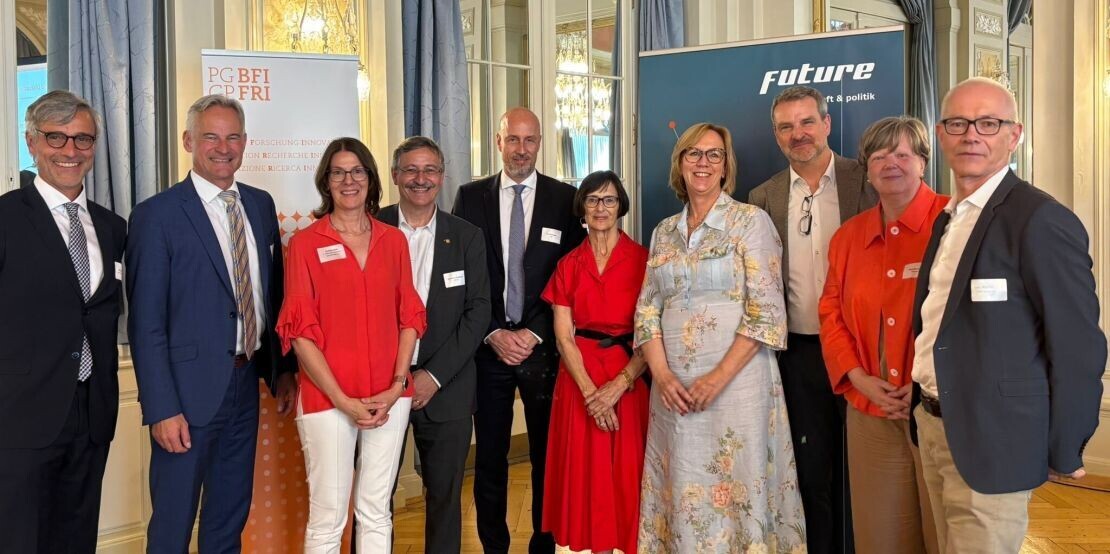
Dossiers - Relations with the EU
Full association with Horizon – why EU research ties matter to CH
03.07.2025
On 19 June 2025, representatives from politics, science and business gathered for the session event of the Parliamentary Group on Education, Research and Innovation (PG BFI) in cooperation with Network FUTURE. The focus was on the importance of EU programmes for research and innovation and the upcoming political decision on the agreement on Switzerland's reassociation.
The event was opened by Councillor of States Isabelle Chassot, President of the PG BFI, who emphasised the political context: Switzerland is at a turning point. With the upcoming consultation on the package of agreements with the EU, it is not only participation in "Horizon Europe" that is at stake, but also the strategic course for research, innovation and Switzerland as a business location.
Study shows: Horizon access is a national imperative
The core content was the presentation of the new study by Barbara Haering and Sandra Wirth, which was commissioned by scienceindustries and financed by Novartis. The results clearly show that Switzerland's restricted access to EU programmes has not only affected universities, but also research-intensive industry. Transitional measures dampen the impact in the short term - but do not replace the systemic added value of full association.
Science: losing talent, squandering influence
In the short panel discussion on science, ETH Board President Michael Hengartner emphasised the missed opportunities for young researchers. Exclusion from individual funding programmes such as the ERC or MSCA slows down careers and weakens Switzerland's visibility in the international science system. Professor Sebastian Wörwag from the Bern University of Applied Sciences also spoke of an impending erosion of quality should the exclusion continue for longer.
Ambassador Michael Gerber (SERI) emphasised that national programmes cannot replace Switzerland's political and structural influence in the EU.
Economy: Innovative strength needs international networking
In the business panel, Annette Luther, President of scienceindustries, showed how heavily the chemical, pharmaceutical and life sciences industries rely on international research cooperation. She pointed out that the members of scienceindustries account for over a third of private R&D investment in Switzerland - a large proportion of this in areas that are strategically shaped by EU programmes.
Gregory Ribordy (ID Quantique) and Erich Rütsche (IBM) reported from the field: restricted access slows down innovation, makes it difficult to attract talent and jeopardises the retention of research activities in Switzerland in the medium term. Both warned that only stable and regulated relations with the EU can influence location decisions in favour of Switzerland in the long term.
Conclusion: Time is of the essence
The session event made it clear that full association with EU research and education programmes is equally important for science and business. Ratification of the agreement package is not just a technical necessity - it is a strategic prerequisite for the future viability of the Swiss innovation model.
